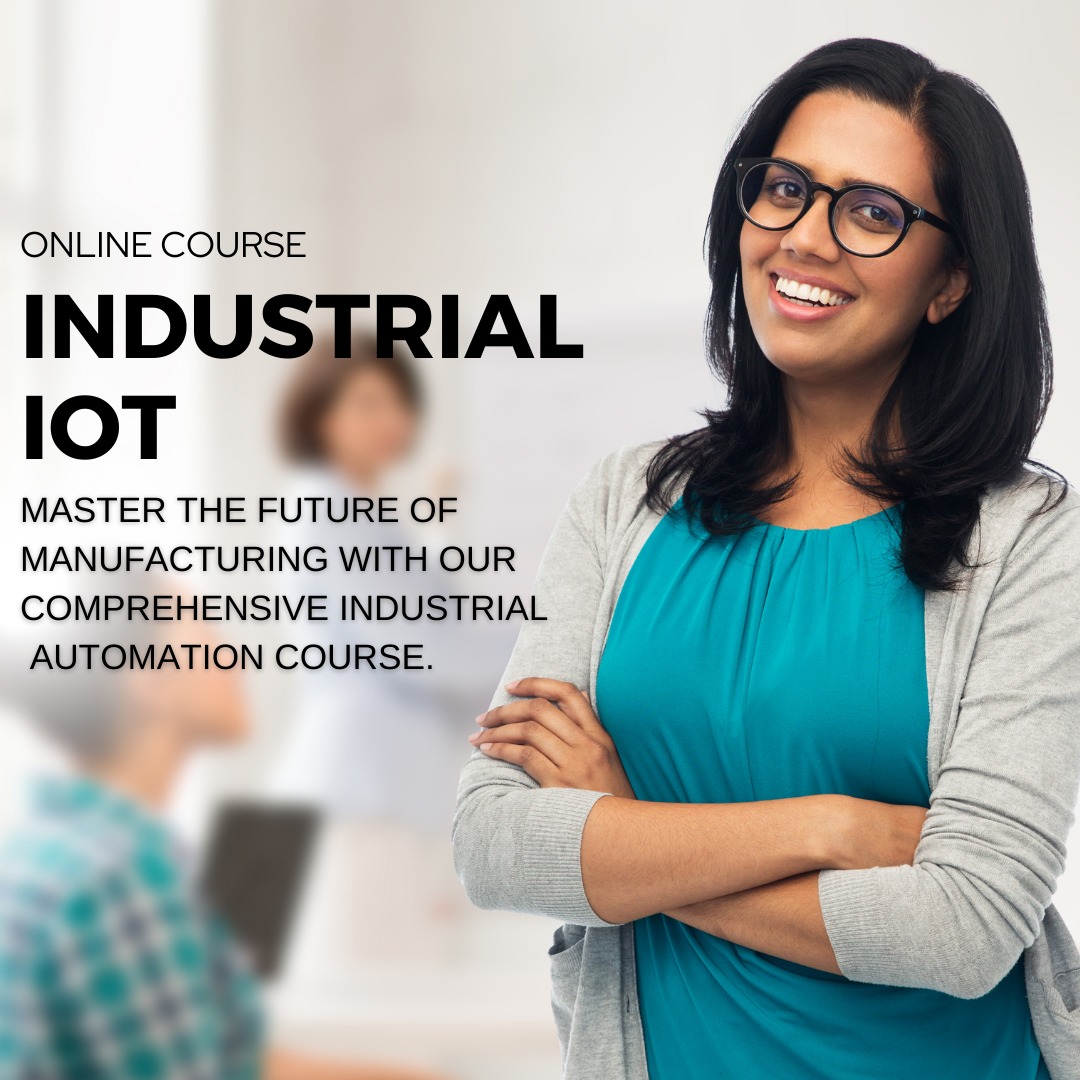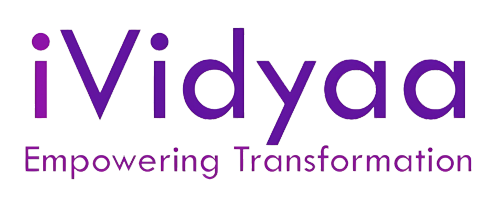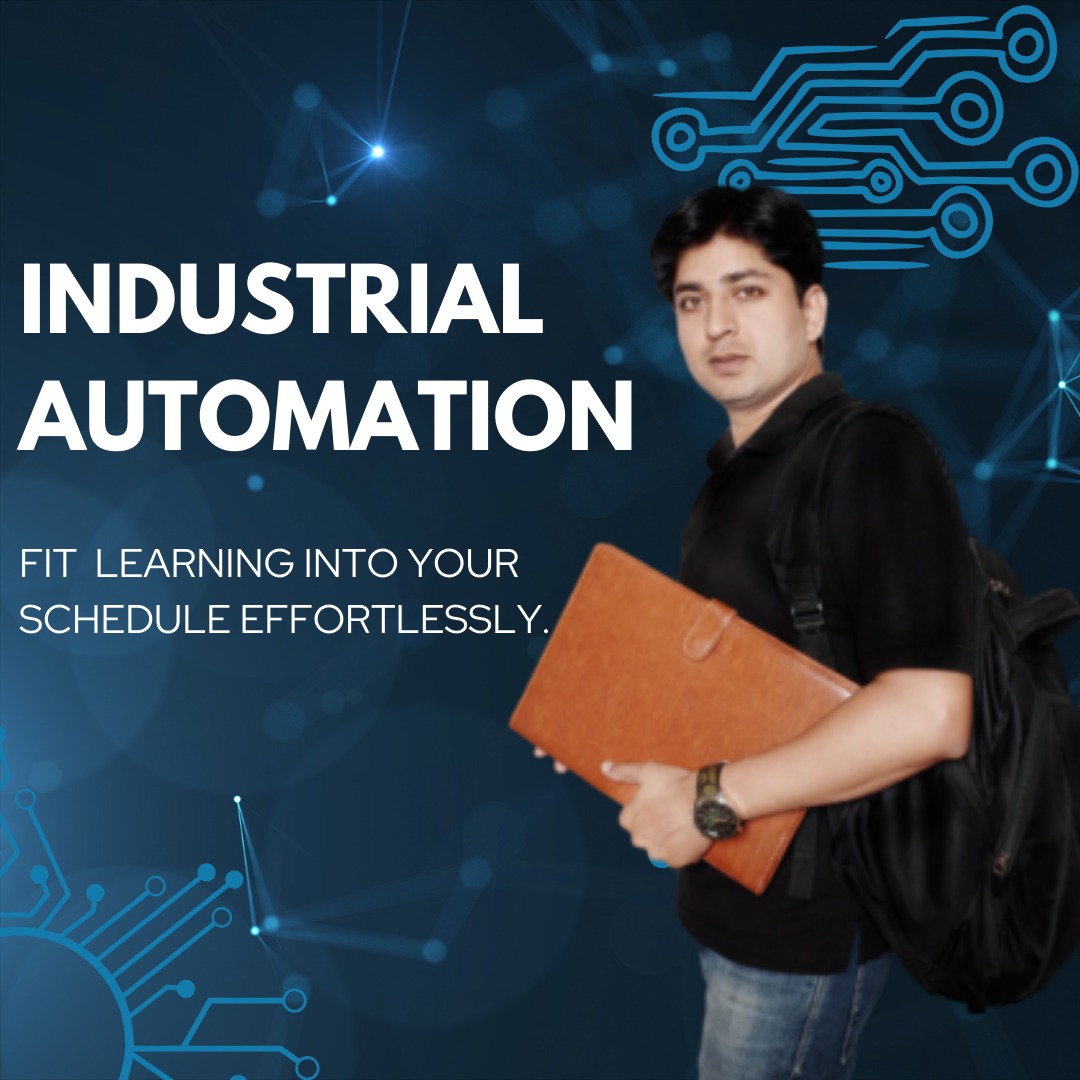Bio data is empty

About Course
Join iVidyaa’s IIoT course to unlock the future of connected manufacturing! Understand how IIoT is being applied in real-world scenarios within the industry and across manufacturing and develop a solid understanding of IIoT concepts and applications in manufacturing. With iVidyaa, you stand to gain insights from experts who share perspectives on the opportunities and challenges of implementing IIoT
| Classroom | Self-Study | Total |
| 44 | 214 | 258 |
Fees:
Tech Stack:
Curriculum:
The Industrial Internet of Things (IIoT) course provides an essential foundation for understanding how interconnected devices are revolutionizing industrial processes. Students will start with an introduction to IIoT and IoT, learning how these technologies enable real-time data generation and collection from a multitude of industrial assets. The course covers key aspects of IIoT communications, highlighting protocols and standards that ensure seamless connectivity and interoperability. With a focus on IIoT data management, students will explore cloud-based solutions that facilitate efficient data storage, analysis, and accessibility, driving informed decision-making and operational efficiency.
By delving into the essentials of Industry 4.0, this course prepares students to engage with the latest advancements in smart manufacturing and automated systems. Participants will gain practical skills and knowledge to design and implement IIoT solutions, positioning themselves at the forefront of technological innovation. This course is indispensable for those aiming to pursue careers in industrial automation, data analysis, and systems engineering, providing the tools needed to drive digital transformation and enhance productivity in diverse industrial sectors.
| Industrial Internet of Things | |
| Introduction to IIoT | Introduction to IoT & IIoT |
| Components & Technologies of IIoT | |
| Data Management Platforms | |
| Integration & Computing | |
| Application & Business Considerations | |
| Case Studies & Future Trends | |
| Data Generation & Collection | IIoT Architectures & Data Flow |
| Introduction to ESP32/ ESP32 CAM Module | |
| Sensors & Actuators in IIoT | |
| Programing & Interfacing with ESP32/ ESP32 CAM | |
| Data Collection & Communication | |
| Mini Project | |
| IIoT Communications | Overview of IIoT Communications |
| Edge Gateways & Devices | |
| Industrial Communication Protocols | |
| IIoT Development Platforms | |
| Mini Project | |
| Cloud & IIoT Data Management | Introduction to Cloud-based data management in IoT |
| Cloud-based storage & security | |
| Databases for IIoT Data | |
| Cloud-based Data Analytics & AI | |
| Building & Implementing Predictive Models | |
| Introduction to Industry 4.0 | Introduction to Industry 4.0 |
| Understanding the Fourth Industrial Revolution | |
| Smart Factories | |
| Impact of Industry 4.0 on different sectors | |
| Challenges & Benefits of Industry 4.0 | |
| Future Directions | |
FAQs
| Question | What is Industrial automation? |
| Answer | “Industrial automation refers to the use of robotics, control systems, and computer technology to streamline and optimize industrial processes. It aims to enhance efficiency, safety, and productivity by automating tasks that were traditionally performed by human workers.” |
| Question | Why Industrial automation is important ? |
| Answer | Industrial automation serves as the bedrock of efficiency, transforming industries by reducing mistakes, speeding up processes, and enhancing resource utilization. Its paramount importance lies in freeing human potential from mundane tasks, fostering innovation, and enabling businesses to adapt swiftly |
| Question | Why training in Industrial automation is important ? |
| Answer | Industrial automation refers to the use of control systems, sensors, and software to automate industrial processes. It includes technologies like PLC (Programmable Logic Controller) and SCADA (Supervisory Control and Data Acquisition). Industrial automation training helps individuals develop skill sets that allow them to tackle real-world challenges more effectively.It prepares students and employees with the necessary capabilities to meet changing market demands and adapt to future challenges. On the business front , it helps in overall growth and competitiveness of the business through increased efficiency and productivity, enhanced accuracy and improved safety. |
| Question | What is Industrial Internet of Things (IIOT)? |
| Answer | The Industrial Internet of Things (IIoT) refers to the application of Internet of Things (IoT) technology in industrial settings. It involves Integration of Sensors and Machinery and Data-Driven Automation and Optimization by using Cyber-physical systems (CPS),Cloud computing , Edge computing, Big data analytics and Artificial intillegence & Machine learning. IIoT involves connecting various industrial devices, machines, and equipment to the internet, allowing them to communicate, collect data, and share information.The goal of IIoT is to enhance efficiency, productivity, and decision-making in industries by leveraging real-time data and analytics. |
| Question | Is the demand for IIoT trained individuals increasing ? |
| Answer | Certainly! The demand for Industrial Internet of Things (IIoT) trained professionals is on the rise. The IIoT market is projected to surpass $1 billion globally by 2025. This growth is driven by the adoption of IIoT technologies across various industries. |
| Question | What are the benefits of implementing IIoT? |
| Answer | Implementation of IIoT helps in substantially improving the overall operational efficiency through facilitating Predictive maintenance, Safety and Risk Mitigation by allowing remote monitoring, reducing safety risks and generates valuable data for informed decision-making and process optimization . IIoT links the automation system with enterprise, planning and product lifecycle. |
| Question | Is knowledge of Industrial automation necessary for getting trained on IIoT? |
| Answer | Yes, Industrial automation plays a crucial role in the context of Industrial Internet of Things (IIoT) and it definitely helps if an individual is trained on Industrial automation before he / she gets trained on IIoT. IIoT relies on data from sensors and devices, which are often part of automated systems. PLCs and SCADA systems are essential components in industrial automation. They help control machinery, monitor processes, and collect data. IIoT extends automation by connecting these devices to the internet, enabling real-time data exchange and remote monitoring. For example, an IIoT system might involve sensors in a factory measuring temperature, pressure, or machine status. These sensors communicate with PLCs and SCADA systems, which then transmit data to cloud platforms for visualisation (dashboards) and further analysis. |
| Question | Is there a demand for Industrial automation and IIoT trained individuals ? |
| Answer | Automation is transforming businesses and contributing to economic growth by enhancing productivity. The industrial automation sector has seen significant job growth in the past decade, with the global market estimated to reach more than $296 billion in coming years. According to a report from PwC, the impact on OECD jobs will start to be felt in the mid-2020s. By 2025, approximately 10-15% of jobs in sectors such as manufacturing, transportation, storage, and wholesale and retail trade will have high potential for automation. |
| Question | How to get trained on Industrial automation and IIoT? |
| Answer | Like any other training , an individual may undergo Industrial automation and IIoT training with someone who understands the practical aspects of Industrial automation and is not limited to theoratical aspects only. iVidyaa , by vertue of its pedigree of SSIPL (a company which has a reputation of delivering hundreds of Industrial automation projects over almost last 3 decades) is best suited for anyone wanting to undergo training on Industrial automation and IIoT. |
| Question | Who should get trained on Industrial automation and IIoT ? |
| Answer | The Industrial automation and IIoT courses being offered by iVidyaa are best suited for professionals and students alike. While for the students and fresh pass outs these act as a catalyst in securing an exciting career opportunity, for the professionals it acts as an effective upskilling proposotion to enable them to grow in their field of operation or explore new areas to excel. |
| Question | What can one expect to learn from Industry 4.0 course being offered by iVidyaa? |
| Answer | While the course covers Industrial automation and IIoT in detail, it also offers insights of Industry 4.0 . |
| Question | What is the minimum qualification for enrolling for the Industry4.0 , Industrial automation or IIoT training programs being offered by iVidyaa ? |
| Answer | Our courses on Industry 4.0, Industrial automation and IIoT can be undertaken by an individual who is pursuing or passed out diploma / graduation/ post-graduation in engineering or is a professional in any branch of engineering. |
Benefits of the course
- Grasp the core concepts and principles of the React JavaScript library.
- Understand the importance of component-based architecture in building scalable applications.
- Master the handling of state and props, fundamental to React component development.
- Implement routing and navigation in single-page applications using React Router.
- Dive into React hooks and functional components for modern and efficient development.
- Learn how to connect React applications to external APIs and manage asynchronous data.
Course Content
-
Let’s learn react from scratch with projects
00:00 -
How to learn react | A react Roadmap
19:17:00




